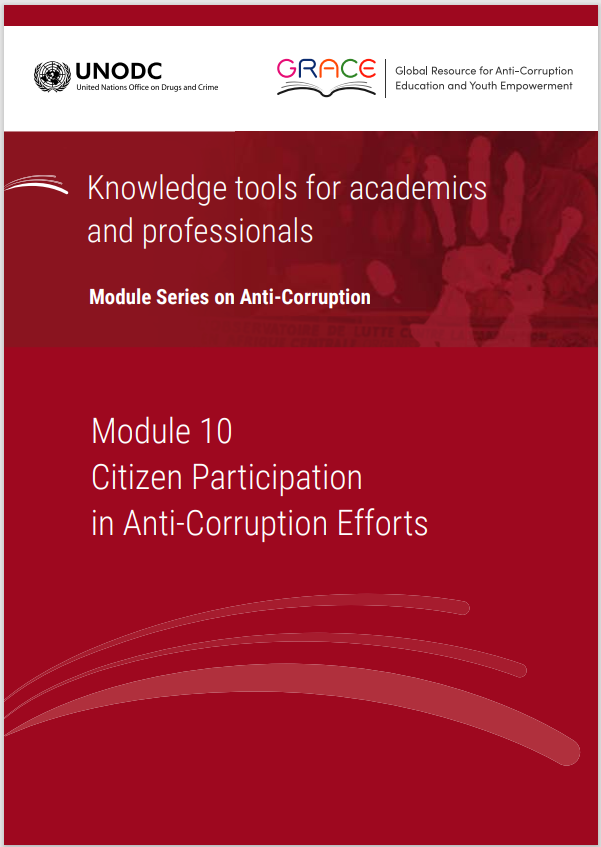This module is a resource for lecturers
Core reading
This section provides a list of (mostly) open access materials that the lecturer could ask the students to read before taking a class based on this Module.
- Carr, Indira, and Opi Outhwaite (2011). The Role of Non-Governmental Organizations (NGOs) in combatting corruption: Theory and Practice. Suffolk University Law Review, vol. 44, no. 3, pp. 615-664.
- Chadha, Kalyani and Linda Steiner (2015). The Potential and Limitations of Citizen Journalism Initiatives: Chhattisgarh's CGNet Swara. Journalism Studies, vol. 16, no. 5, pp. 706-718.
- Johnston, Michael (2011). First, Do No Harm - Then, Build Trust: Anti-Corruption Strategies in Fragile Situations. Washington D.C.: World Bank.
- Kossow, Niklas (2018). Fake news and anti-corruption. Berlin: Transparency International.
- Marquette, Heather, and Caryn Peiffer (2015). Corruption and Collective action. Bergen: U4 Anti-Corruption Resource Centre, Chr. Michelsen Institute.
- Mungiu-Pippidi, Alina (2013). Controlling Corruption Through Collective Actions . Journal of Democracy, vol. 26, issue 1, pp. 101-115.
- Organisation for Economic Co-operation and Development (2018). The Role of the Media and Investigative Journalism in Combating Corruption . Paris.
- Ronan, Kaunin (2018). Social Accountability Initiatives and Civil Society contribution to anti-corruption efforts in Bangladesh . Bergen: U4 Anti-Corruption Resource Centre, Chr. Michelsen Institute.
- Santiso, Carlos, and Benjamin Roseth (2017). Is the data revolution a game changer in the fight against corruption? World Economic Forum, 24 February.
- Spurk,Christoph (2010). Understanding civil society. In Civil society and peacebuilding: a critical assessment, Pffenholz, T. ed. Boulder Rienner.
- Wall, Melissa (2015). Citizen Journalism: A retrospective on what we know, an agenda for what we don't. Digital Journalism, vol. 3, issue 6 (February), pp. 797-813.
- Wheatland, Ben, and Marie Chene (2015). Barriers to Collective action against corruption . Bergen: U4 Anti-Corruption Resource Centre, Chr. Michelsen Institute.
 Next: Advanced reading
Next: Advanced reading
 Back to top
Back to top
